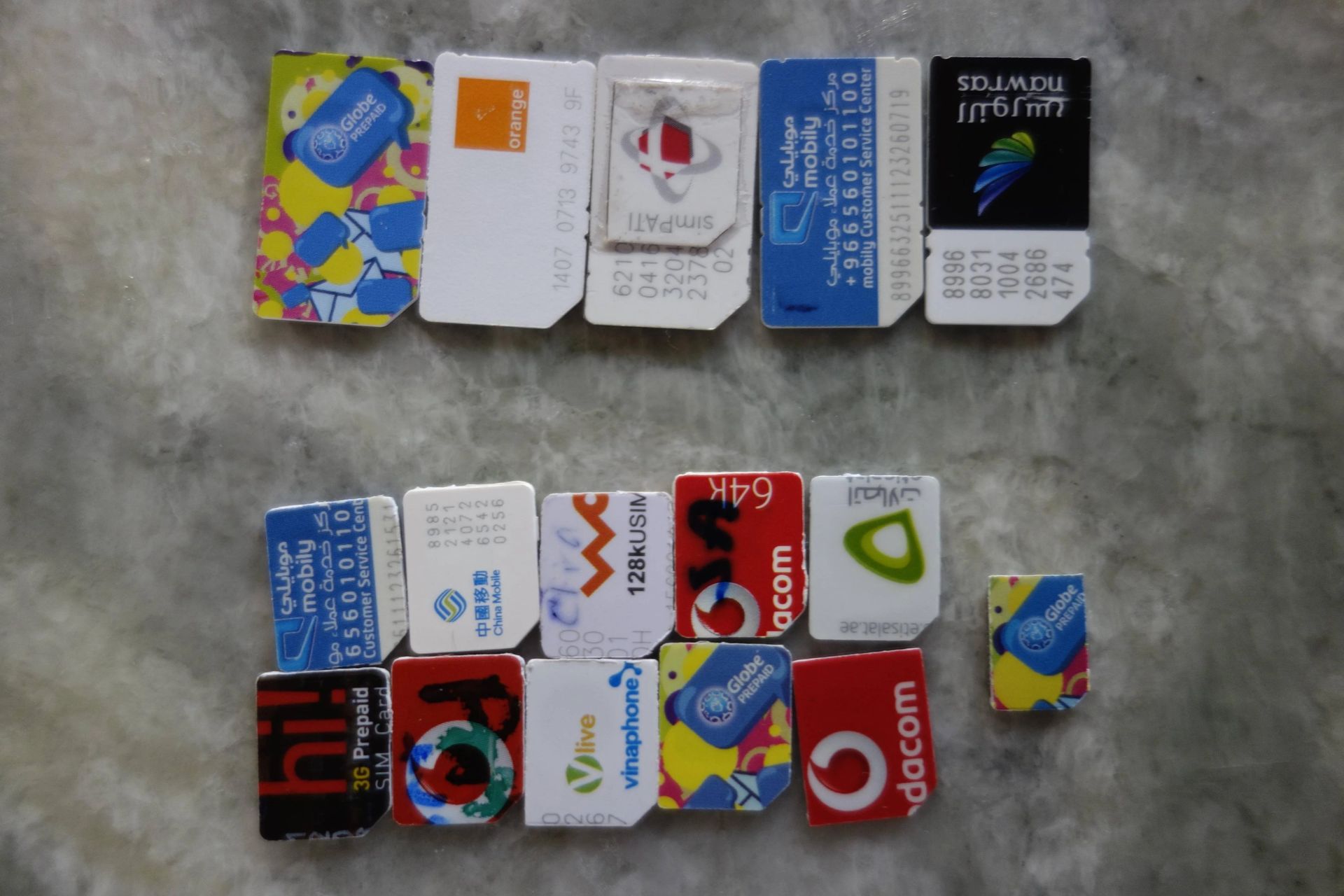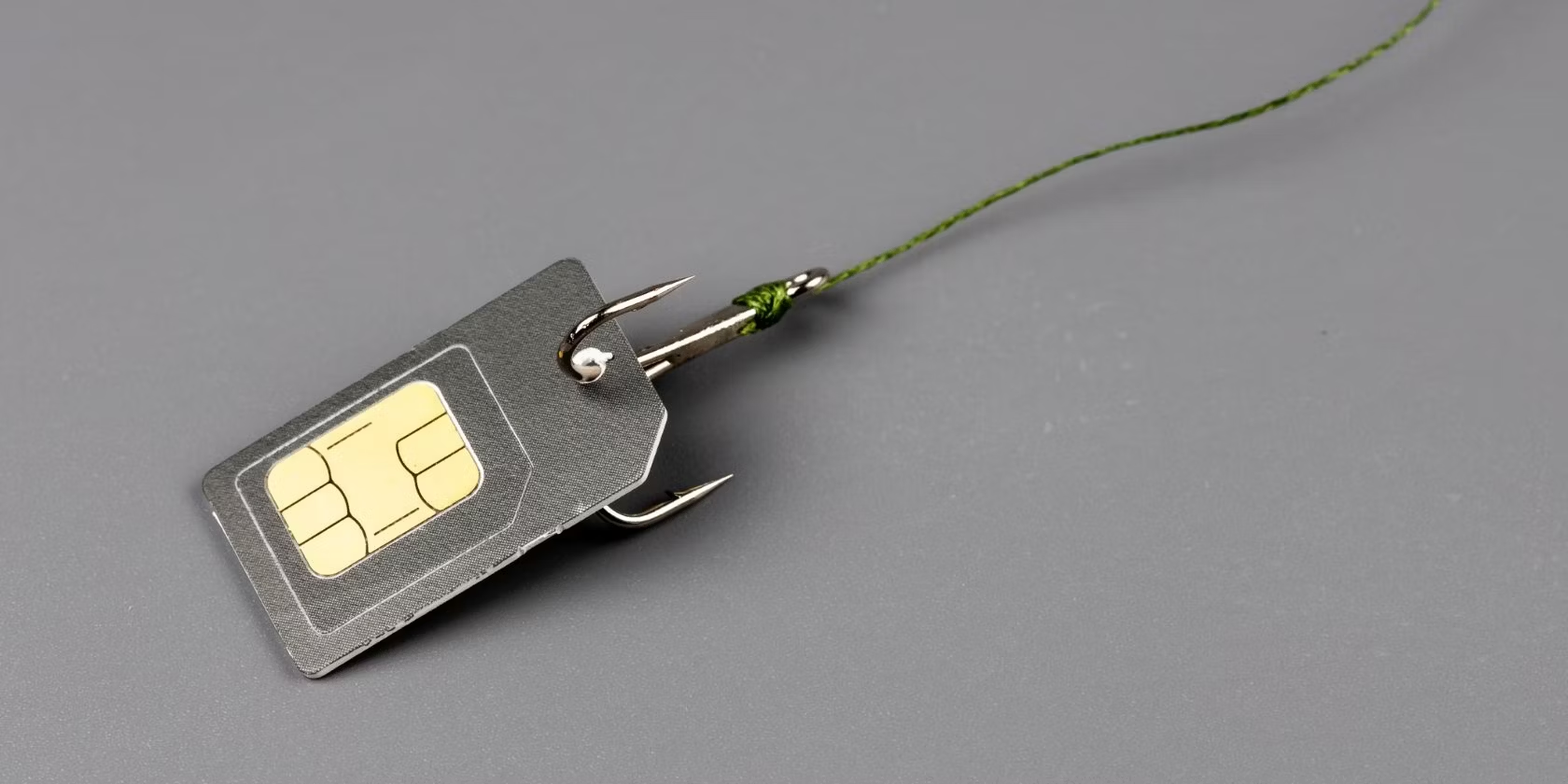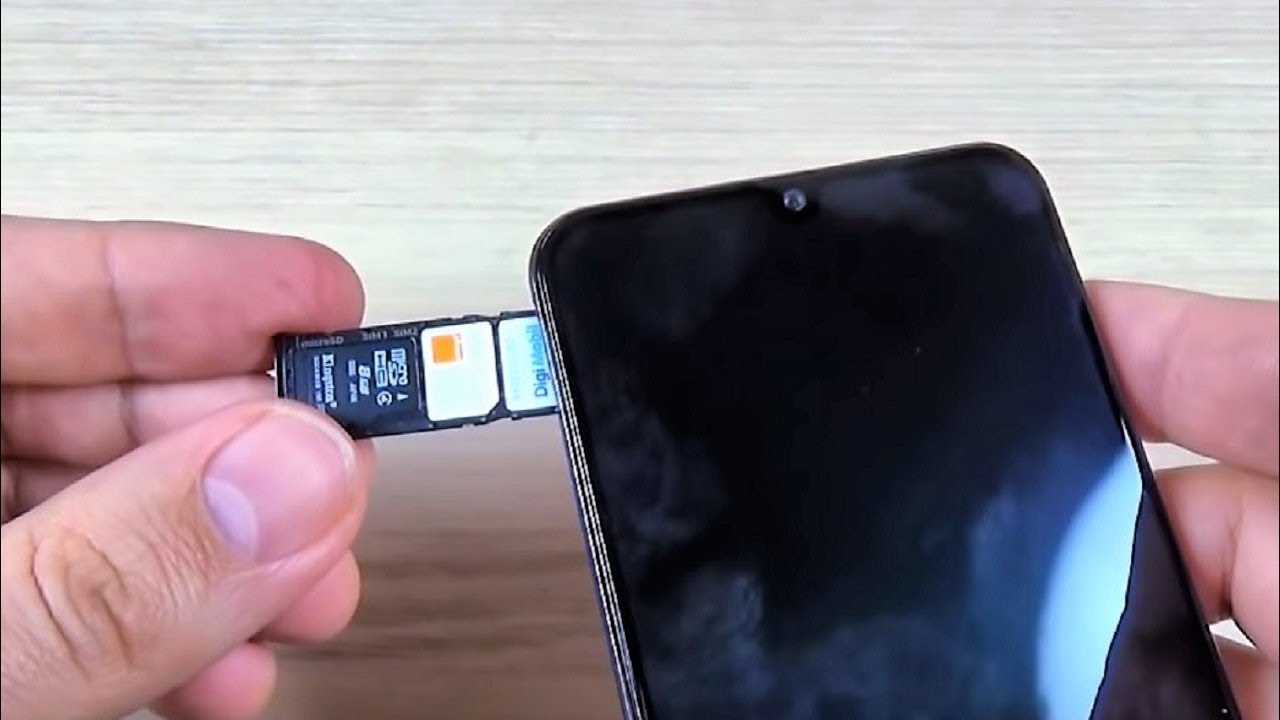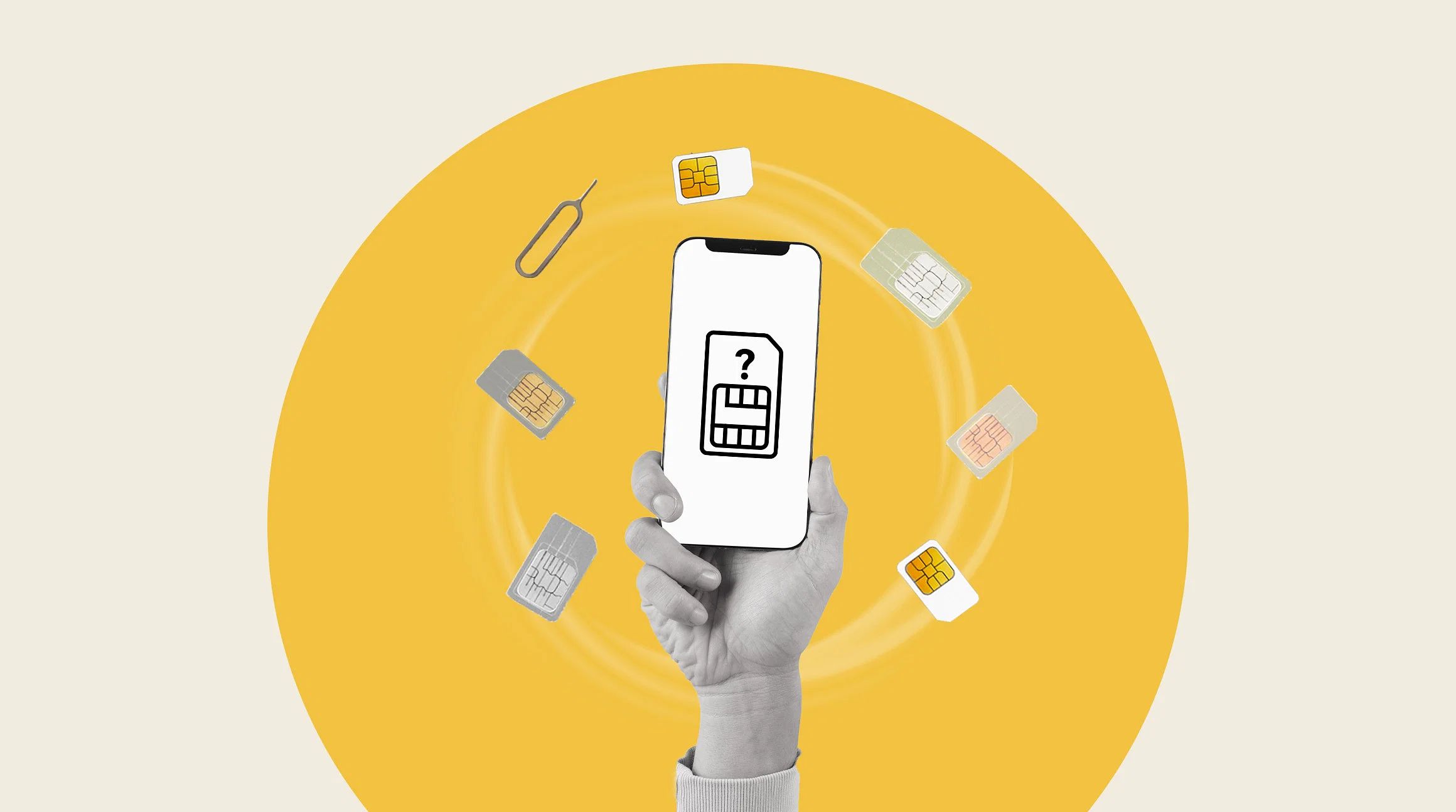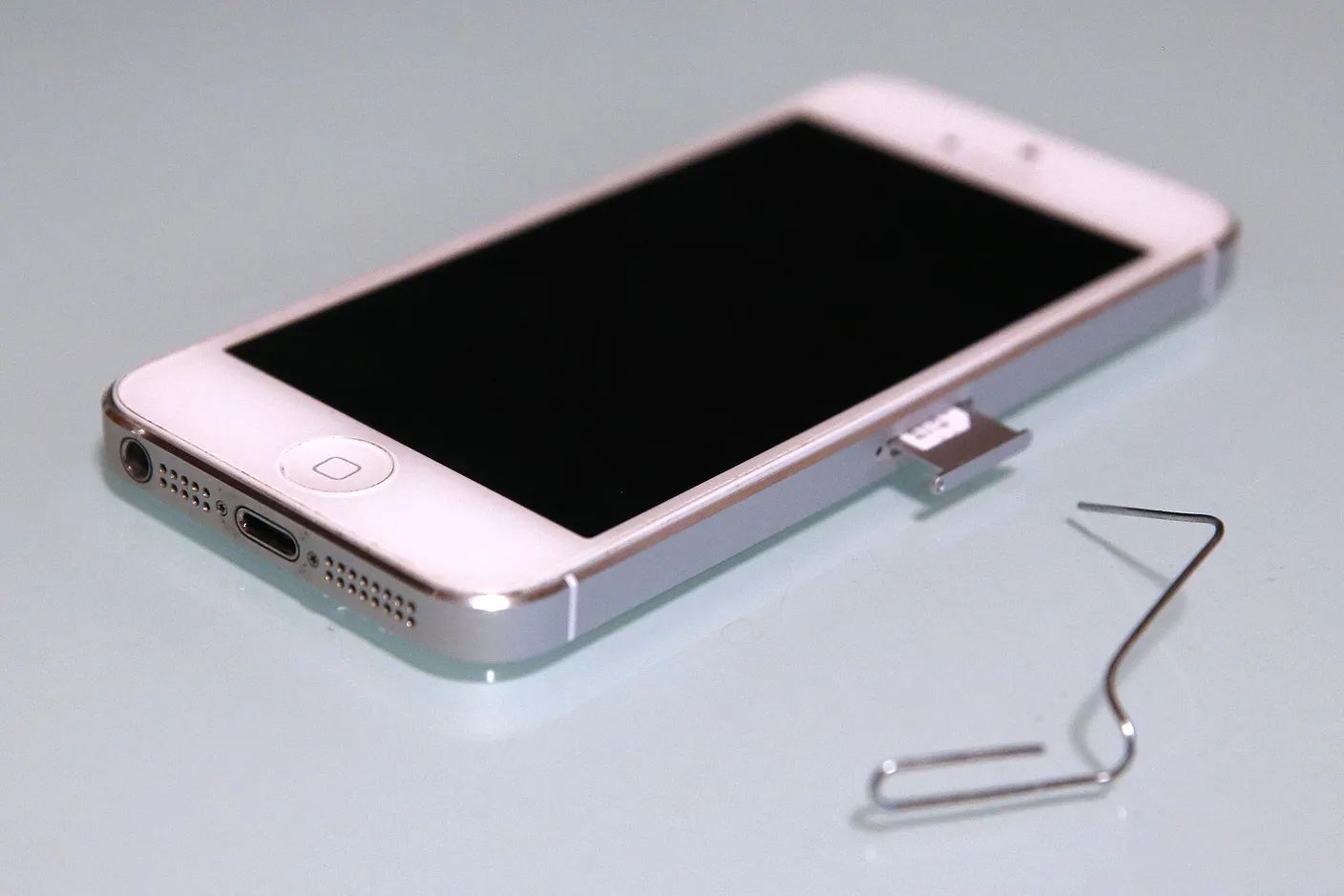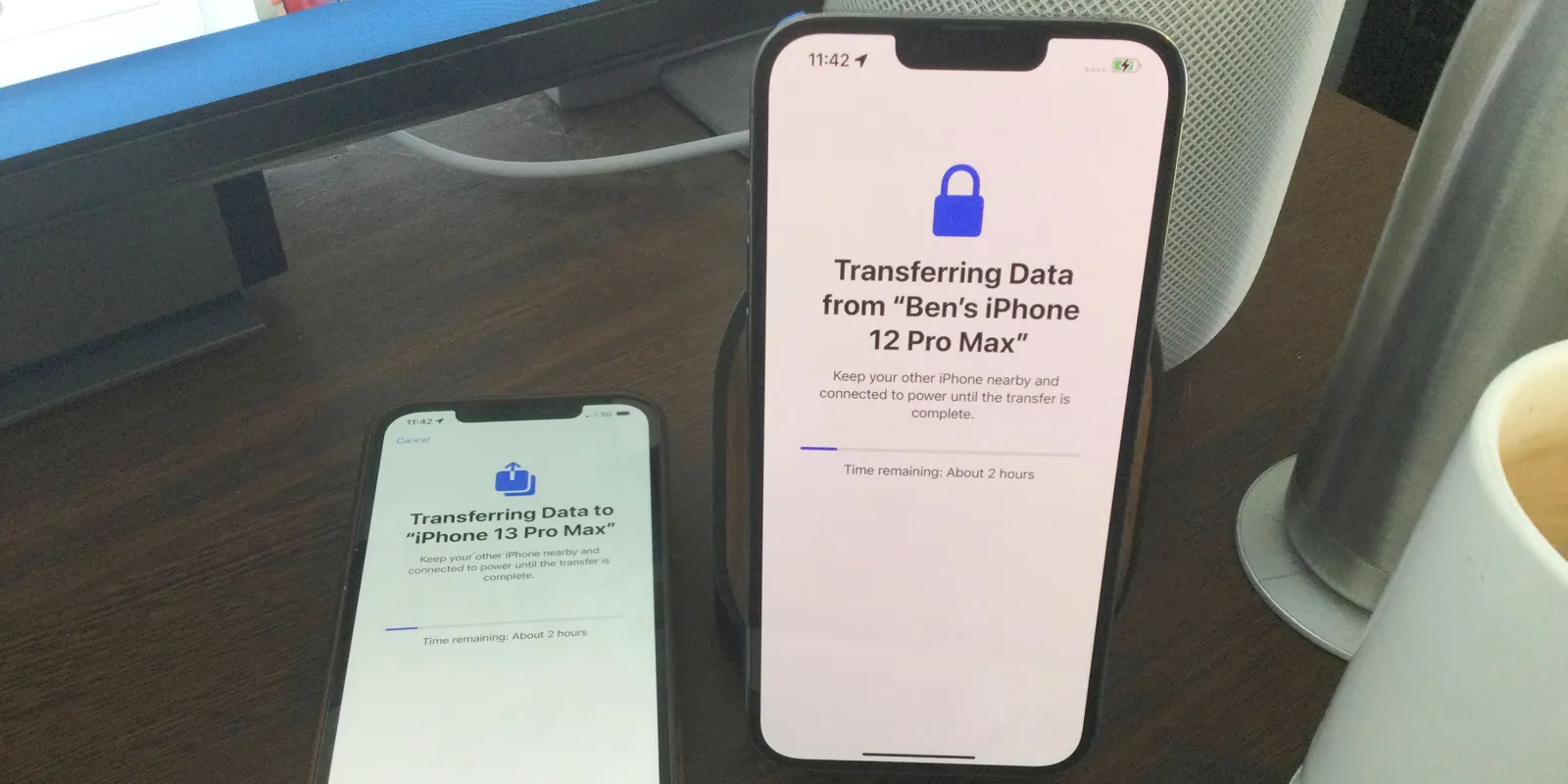Introduction
In today's fast-paced digital age, mobile devices have become an indispensable part of our daily lives. From staying connected with loved ones to accessing a wealth of information at our fingertips, the significance of mobile devices cannot be overstated. At the heart of these devices lies the SIM card, a small yet powerful component that enables seamless communication and connectivity.
As technology continues to advance at a rapid pace, many individuals find themselves upgrading to newer, more advanced mobile devices. When making this transition, it's crucial to consider the handling of old SIM cards. While it may seem like a minor detail, the proper management of old SIM cards holds significant importance, both from a security and environmental standpoint.
In this article, we will delve into the intricacies of handling old SIM cards, shedding light on the essential considerations that individuals should bear in mind when dealing with these tiny but crucial components. From understanding the nature of old SIM cards to exploring the best practices for their disposal, we aim to provide comprehensive guidance that empowers readers to make informed decisions regarding their old SIM cards.
As we navigate through the nuances of managing old SIM cards, it's important to recognize the impact of our actions on the environment and personal data security. By taking a proactive approach to handling old SIM cards, we not only contribute to a sustainable future but also safeguard our sensitive information from potential risks.
Join us on this insightful journey as we unravel the key considerations for handling old SIM cards, empowering you to make responsible choices in the ever-evolving landscape of mobile technology.
Understanding Old SIM Cards
Old SIM cards, also known as Subscriber Identity Module cards, are integral components of mobile devices that store essential information, including unique user identification, contact details, and network authentication data. These small, thumbnail-sized cards are designed to facilitate seamless communication and connectivity, allowing users to make calls, send text messages, and access mobile data services.
Over time, as individuals upgrade to newer mobile devices or switch to different service providers, they often find themselves with old SIM cards that are no longer in use. These old SIM cards may hold a wealth of personal data, including contact lists, text messages, and call logs, making them potential repositories of sensitive information.
It's important to understand that old SIM cards, despite being inactive, retain the data stored within them unless properly managed. This data may pose security risks if not handled with care, as unauthorized access to old SIM cards could lead to the compromise of personal information.
Furthermore, old SIM cards are often equipped with a range of security features, including PIN codes and PUK (Personal Unblocking Key) codes, to protect the data stored within them. Understanding the mechanisms and security protocols associated with old SIM cards is crucial in ensuring that they are handled and disposed of in a secure manner.
From a technological perspective, old SIM cards may also contain outdated software and firmware that could potentially pose compatibility issues with newer mobile devices. As mobile technology advances, the functionalities and capabilities of SIM cards continue to evolve, making older cards less compatible with modern devices and network standards.
In summary, understanding old SIM cards involves recognizing their significance as repositories of personal data, understanding the security measures in place to protect this data, and acknowledging the potential technological limitations of outdated SIM cards. By gaining a comprehensive understanding of old SIM cards, individuals can make informed decisions regarding their management and disposal, thereby mitigating potential security risks and contributing to a sustainable approach to mobile technology.
Important Considerations for Handling Old SIM Cards
When it comes to handling old SIM cards, several crucial considerations demand attention to ensure the security of personal data and the responsible management of electronic waste. Whether you are upgrading to a new device, switching service providers, or simply retiring an old SIM card, the following important considerations should guide your approach:
-
Data Security: Old SIM cards often store a wealth of personal data, including contact information, text messages, and call logs. Therefore, safeguarding this sensitive data is paramount. Before disposing of an old SIM card, ensure that all personal information is securely erased. Many mobile devices offer the option to reset or wipe the data stored on the SIM card, providing a layer of protection against potential data breaches.
-
Encryption and PIN Protection: Some old SIM cards may have encryption features or PIN protection enabled. It is essential to disable these security measures before discarding the SIM card. By doing so, you prevent unauthorized access to the data stored on the card, mitigating the risk of privacy breaches.
-
Proper Disposal: When parting ways with an old SIM card, it is crucial to consider its proper disposal. Instead of simply tossing it into the trash, explore environmentally responsible disposal options. Many mobile service providers and electronic retailers offer recycling programs for old SIM cards and other electronic components, ensuring that they are disposed of in an eco-friendly manner.
-
Physical Destruction: For added security, physically destroying the old SIM card can be a viable option. This can be achieved by cutting the card into small pieces or using a specialized SIM card shredder, rendering the data stored on the card irretrievable.
-
Understanding Legal Obligations: Depending on your location, there may be legal requirements or regulations governing the disposal of electronic waste, including old SIM cards. Familiarize yourself with the applicable laws and guidelines to ensure compliance with environmental regulations and data protection statutes.
-
Consider SIM Card Reusability: In some cases, old SIM cards may still be functional and reusable. If you are discarding a SIM card due to an upgrade or change in service provider, consider whether the card can be repurposed for other uses. This approach not only reduces electronic waste but also promotes sustainable resource utilization.
-
Documentation and Record-Keeping: It is advisable to maintain records of the disposal or transfer of old SIM cards, especially in organizational settings. Keeping detailed documentation of the steps taken to erase data and dispose of the cards can serve as a proactive measure in demonstrating compliance with data protection regulations and organizational policies.
By carefully considering these important factors when handling old SIM cards, individuals and organizations can uphold data security best practices, contribute to environmental sustainability, and align with regulatory requirements. Taking a proactive and responsible approach to managing old SIM cards not only safeguards personal information but also fosters a culture of conscientious electronic waste management.
Proper Disposal of Old SIM Cards
When it comes to parting ways with old SIM cards, proper disposal is paramount to ensure both environmental responsibility and data security. Simply discarding old SIM cards in the trash poses risks of potential data breaches and contributes to electronic waste accumulation. Therefore, individuals and organizations are encouraged to explore environmentally conscious disposal methods for old SIM cards.
One of the most effective approaches to proper disposal is through recycling programs offered by mobile service providers and electronic retailers. These programs are designed to collect old SIM cards and other electronic components, ensuring that they are recycled and processed in an eco-friendly manner. By participating in these initiatives, individuals contribute to the reduction of electronic waste and the sustainable management of resources.
In addition to recycling programs, some regions have specific e-waste disposal facilities or collection points where old SIM cards and other electronic devices can be dropped off for proper recycling. These facilities are equipped to handle electronic waste in a manner that minimizes environmental impact, promoting the reuse of valuable materials and the safe disposal of hazardous components.
For those concerned about the security of data stored on old SIM cards, physical destruction is a viable option. This involves rendering the SIM card irretrievable by cutting it into small pieces or using specialized SIM card shredders. By destroying the physical integrity of the card, the risk of unauthorized access to sensitive information is effectively mitigated.
It's important to note that proper disposal of old SIM cards not only mitigates environmental impact but also aligns with legal obligations. Depending on the jurisdiction, there may be regulations governing the disposal of electronic waste, including old SIM cards. Familiarizing oneself with these regulations ensures compliance with environmental laws and contributes to a sustainable approach to electronic waste management.
By adopting responsible disposal practices for old SIM cards, individuals and organizations demonstrate a commitment to data security, environmental stewardship, and regulatory compliance. Through proper disposal methods, the lifecycle of old SIM cards is managed in a manner that minimizes environmental harm and upholds the principles of sustainable resource utilization.
Conclusion
In the ever-evolving landscape of mobile technology, the handling of old SIM cards holds significant importance, transcending mere physical components to encompass data security, environmental sustainability, and regulatory compliance. As individuals and organizations navigate the process of upgrading devices, switching service providers, or retiring old SIM cards, a proactive and informed approach is essential to address the multifaceted considerations associated with these tiny yet pivotal components.
By gaining a comprehensive understanding of old SIM cards, individuals are empowered to make informed decisions regarding their management and disposal. Recognizing old SIM cards as repositories of personal data underscores the critical need to prioritize data security when handling these components. Safeguarding sensitive information through secure data erasure and the disabling of encryption and PIN protection mechanisms is paramount in mitigating the risk of privacy breaches and unauthorized access.
Furthermore, the responsible disposal of old SIM cards is integral to environmental stewardship. Engaging in recycling programs, utilizing e-waste disposal facilities, and considering physical destruction options all contribute to the sustainable management of electronic waste. By embracing these practices, individuals not only reduce their environmental footprint but also support the reuse of valuable materials and the safe disposal of hazardous components.
Moreover, understanding and complying with legal obligations related to electronic waste disposal demonstrate a commitment to regulatory compliance and ethical conduct. By aligning with environmental laws and guidelines, individuals and organizations uphold the principles of responsible citizenship and contribute to the collective effort towards a sustainable future.
In essence, the management of old SIM cards transcends the realm of technology, encompassing elements of data security, environmental consciousness, and legal compliance. By approaching the handling and disposal of old SIM cards with diligence and responsibility, individuals and organizations affirm their commitment to safeguarding personal data, minimizing environmental impact, and upholding ethical standards.
As we embrace the advancements in mobile technology, let us not overlook the significance of conscientious old SIM card management. Through informed decision-making and proactive measures, we can navigate this aspect of mobile device transition with a sense of responsibility, contributing to a harmonious coexistence of technological progress and sustainable practices.







